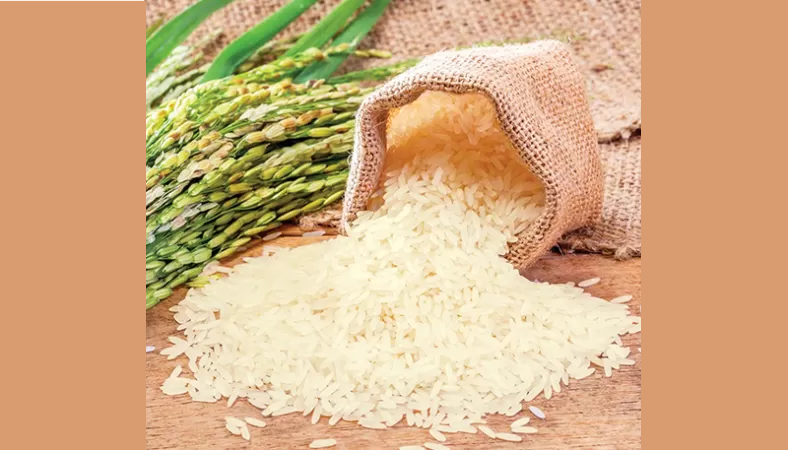The prices of rice shoot up soon after it turns into processed rice from paddy, according to a value chain analysis of different categories of grain conducted by the Bangladesh Rice Research Institute (BRRI).
Labour cost, fluctuated transport cost and making profits in an unfair way are pushing up rice prices. The researchers have also attributed a recent increase in fertiliser prices to the hike in rice prices.
The analysis carried out by BRRI this year has showed that consumers are buying rice at a price that is 250 per cent to 300 per cent higher than that of the production cost (depending on the categories of the grains).
For coarse rice, the production cost for a farmer is Tk 20.58 while rice sold in the market at Tk 47.71, 231 per cent up from the production cost.
Similarly, medium rice sold at Tk 56.18 while the production cost was Tk 21.84 and fine rice sold at Tk 67.19 while its production cost was Tk 22.26.
A significant portion of it has been spent on processing and transportation, showed the study conducted on 2,123 people from 13 agriculture regions in the country during the period between February and early August this year. The respondents included farmers, paddy traders (wholesalers), millers, rice traders (wholesalers and retailers) and consumers.
Mohammad Chhiddikur Rahman, lead of the working group of the research and also the senior scientific officer (SSO) of Agricultural Economics Division under BRRI, said that the research has found that two things contributed most to the rice price hike in 2022.
The production cost and mill-gate selling price have increased this year while over benefit approaches of the millers and retail traders pushed up the prices further, he added.
Rent of land, profit from by-product and some other variables were taken into consideration to estimate the cost and profit of the farmers, but while it comes to the rice millers-end, by-product profit was never counted, he added.
Chiddikur said that paddy and rice traders (wholesalers) are making normal profits. But rice retailers are earning supernormal profits, especially in the case of fine rice.
According to the research, the millers are making profit of Tk1.2 to Tk4.2 per kg depending on the varieties and categories of the grain rice. With by-product, it reaches Tk8.1 to Tk13.71.
By-products for the millers are broken rice, bran (silky and whitener), husk and dead rice. These products are sold for Tk22 to Tk 30 per kg, except for husk (Tk6) Again, the retailers are making profit of Tk2.1 to Tk6.2 per kg from various types of rice grains and varieties.
Md Shajedur Rahaman, Scientific Officer of the AED in BRRI, also a working group member of the research, told The Business Post that from 1.5kg of paddy, millers can get 1kg of rice. But none of the by-products is useless in this sector. And so, millers should not be allowed to get higher price illogically.
“These missing pockets are allowing them to hike up the price. If the pockets were closed, prices could drop below Tk5 to Tk10 per kg,” BRRI SSO Chiddikur opined.
According to the data available from the Consumer Association of Bangladesh and the kitchen market, the country witnessed a 19 per cent rise in the rice prices in 2022, adding to woes of low-and middle income people.
The researchers have also found that surge in the prices has pushed more vulnerable and poor people to have coarse rice. Ninety-two per cent of the poor people are getting coarse rice this year while it was 80 per cent last year, the survey found.
What to do
BRRI SSO Chhiddikur Rahman opined that all the variables in processing rice should be taken into account and they should not be allowed to get higher prices unnecessarily.
The production costs have gone up and insufficient labour force is pushing up the labour cost. The government provided incentives to mechanize the cultivation process.
“We need to give a reality check on how these incentives are used and why the mechanization of the sector could not be ensured till now. If the mechanization can be confirmed, less labour would be needed and the cost would come down,” he added.













